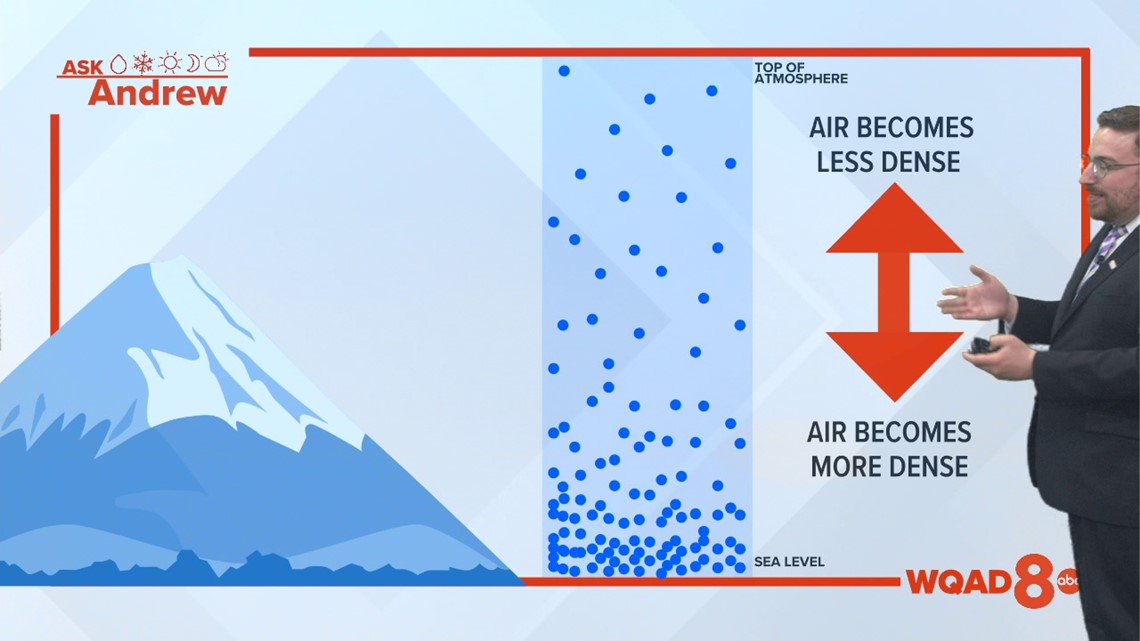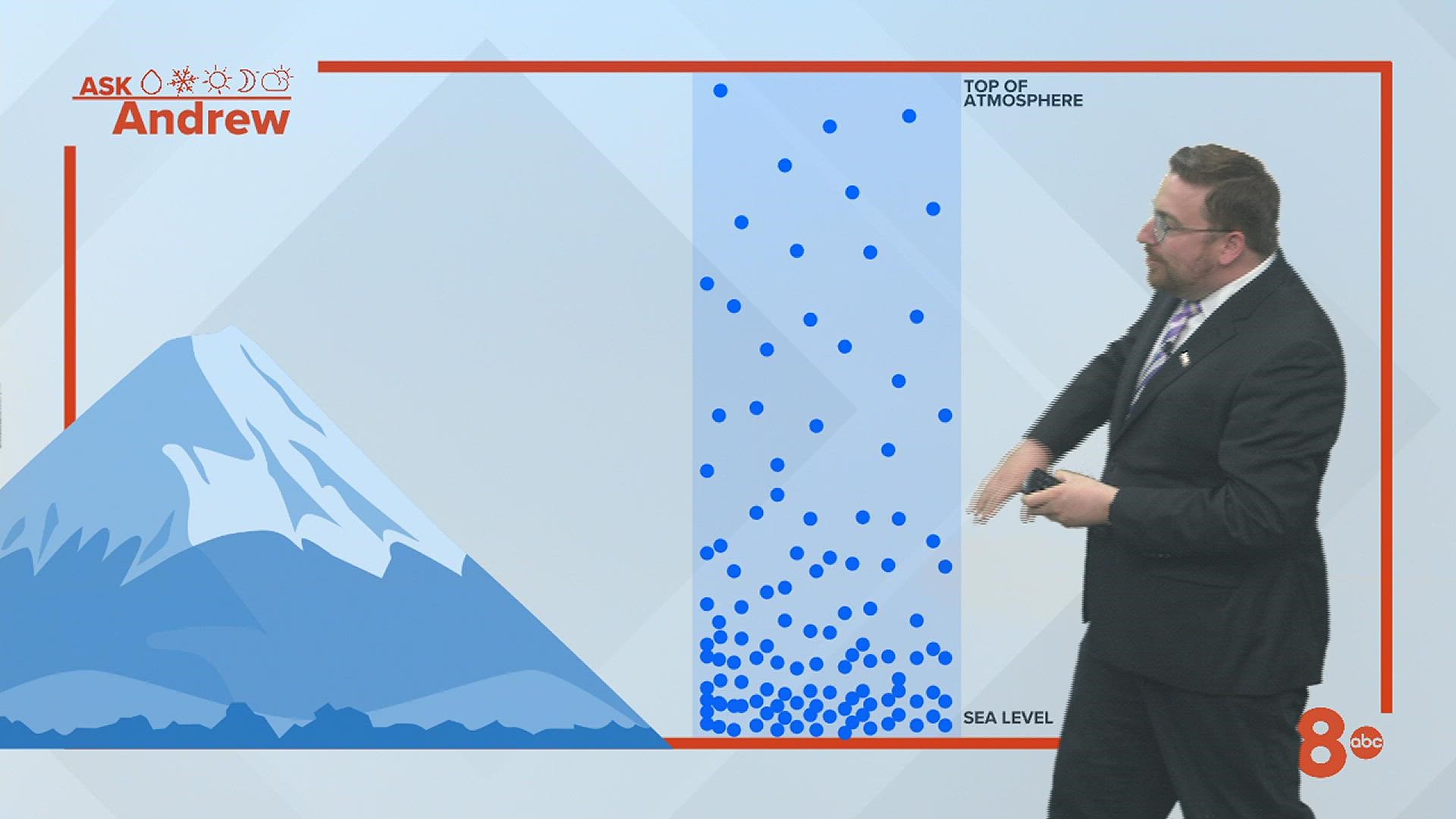MOLINE, Ill. — If you've ever climbed a mountain or taken a ride in an airplane, you know that pressure changes with height. Hikers that work in extreme altitudes have to use techniques to keep up their pace, and airplanes have to pressurize cabins.
This week, we focus on a question from Heather in Davenport who asks, "Why is the air 'thinner' at higher altitudes, and why do some people get altitude sickness?'"
Let's dig in!
Picture this. We have a column of air that stretches from ground level to a height taller than the top of a mountain. Within this column of air resides air particles of different sizes, the vast majority of which are concentrated at the bottom near ground level due to gravity. As we move up higher in the column of air, there are fewer and fewer molecules occupying this space. It's this reason that the air becomes less dense the higher up in altitude you go, while the air is denser down towards ground level.


Another way you can think of this, picture a glass of water. The pressure at the bottom of the glass is higher compared to the pressure at the top of the glass because you have the weight of all the water molecules forcing weight down into the bottom of the glass and hence, creating the greater pressure force.
Heather also asked about altitude sickness and what leads up to it. According to the Cleveland Clinic, altitude sickness is caused by a rapid increase in altitude over a short period of time. These symptoms occur when your body tries to adjust to the lower air pressure and lower oxygen levels at higher altitudes. Symptoms can include dizziness, fatigue, shortness of breath, loss of appetite and sleep problems. Nausea and headaches are also commonly reported.
Mild cases of altitude sickness can be treated with over-the-counter medications, and more severe cases require immediate medical attention.
Have a weather question you'd like me to answer? Click here!

